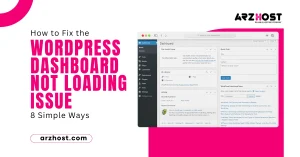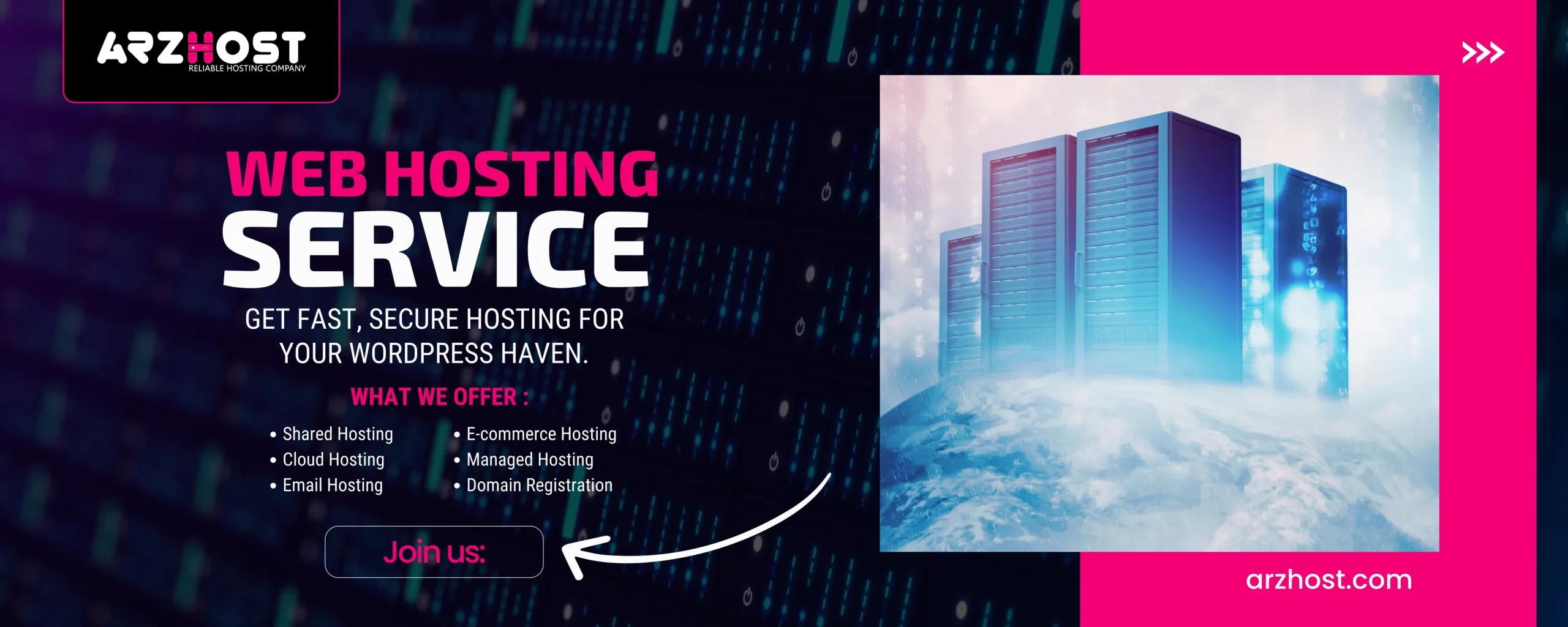Having a strong online presence is essential for individuals, businesses, and organizations in the current digital environment. Selecting a hosting provider is one of the most important choices website owners have to make.
Although there are many other hosting options, self-hosting provides an extra degree of flexibility and control.
Self-hosting is becoming a more and more popular choice for people who want to be in charge of their online image and build a website or web application that they own and are in charge of.
Additionally, WordPress is the most widely used platform for website development.
As of 2023, 43.2% of all websites are powered by WordPress, according to W3Techs.
And that market share increases to 78.65% when you consider only websites that use content management systems (CMS).
By choosing a reputable hosting company, you may administer your website on your own while self-hosting it. Choosing a hosted platform, on the other hand, gives you little to no long-term control over your website.
With self-hosting, you have total control over your website’s features, operations, appearance, and efficiency.
We’ll examine the idea of self-hosting websites in this post, going over their benefits, drawbacks, essential elements, setup procedures, security precautions, optimization strategies, and potential developments.
What is Self Hosting Website?
A self-hosted website is essentially the opposite of a website builder platform. Instead of using a pre-built template and relying on someone else’s servers, you have more control over everything by renting space (server) from a hosting company and installing your own website software.
The practice of hosting your website on a server that you own and operate is known as self-hosting or unmanaged hosting. This implies that you can modify the server environment to suit your requirements and are not dependent on a hosted platform or website builder.
For clarification, managed WordPress servers can also be self-hosted; however, the web host handles server management, installation, and maintenance; these services are included in the more costly plans.
If you want more control over your website and don’t want to be locked into a website builder platform for life, self-hosting is perfect for you.
Think of it as the difference between renting an apartment and owning a house. With a website builder, you’re renting – it’s easy and convenient, but you can’t make major changes. With self-hosting, you’re the homeowner – you can customize everything, but you’re also responsible for maintenance and repairs.
Here are some key points about self-hosted websites:
If you’re looking for a simple website and don’t mind being limited in terms of customization, then a website builder platform might be a good option for you. But if you want more control over your website and are comfortable with a bit of technical work, then self-hosting is the way to go.
How Does Self-Hosting Work?
Using a web server to manage and update a website is known as self-hosting. Another name for it is unmanaged hosting. In other words, all aspects of operating a website, including setup and configuration, fall under the user’s control.

Choosing a web host provider is the first step in the self-hosting process. The user can install an operating system and other required software components on a server the supplier grants access to.
Users can install their website files and set them up to run on their domain name after the server has been configured.
After that, you can take care of your own web server by doing things like software updates, backup creation, speed optimization, and security monitoring. The seamless and safe operation of the website depends on these duties.
Here’s a breakdown of how it works:
Self-hosting offers greater control over your data and privacy compared to using third-party services. It can also be more cost-effective in the long run, especially if you’re using multiple services. However, it requires some technical knowledge to set up and maintain your own server.
What Are the Advantages and Disadvantages of Self-Hosting?
Self-hosting, where you manage your own server for software or websites, offers both advantages and disadvantages compared to using cloud-based services. Here’s a breakdown:
Advantage
- Full Control: You have complete control over your server’s configuration and software.
- Data Privacy: Your data stays on your server, giving you more control over its security.
- Potentially Lower Cost: Self-hosting can be cheaper than using a managed service over time, especially for resource-intensive applications.
- Flexibility: You can install any software you want and customize it to your specific needs.
- Reduced Reliance on Third-Party Services: You are not dependent on the availability of a third-party provider.
Disadvantage
- Technical Expertise Required: Managing and maintaining a server requires technical knowledge
- Security Responsibility: You are responsible for implementing and maintaining security measures.
- Upfront Costs: The initial setup cost for hardware, software, and bandwidth can be high.
- Scalability Challenges: Scaling your infrastructure up or down can be more difficult than with a cloud-based solution.
- Maintenance Burden: You are responsible for all maintenance tasks, including backups, updates, and troubleshooting.
Self-hosting is a good option for those who prioritize control, security, and potential cost savings. However, it requires technical expertise and a commitment to ongoing maintenance. For those who value ease of use and automatic updates, a cloud-based hosted service might be a better fit.
Benefits of Self-Hosting
Many of us use digital spaces—be it a personal blog, an online store, or a platform for collaboration—to express ourselves, do business, or exchange information.

Even though there are many hosting services accessible, self-hosting is becoming a very attractive option for people who want greater independence, personalization, and control over how their online presence is managed.
Self-hosting is the process of running and maintaining your application or website on your infrastructure as opposed to using third-party hosting services. Numerous advantages of this strategy address the requirements of both individuals and corporations.
1: Complete Control
One of the primary advantages of self-hosting is the unparalleled level of control it affords. By hosting your own website or application, you have full autonomy over every aspect of your digital presence. From server configuration to software installations, you dictate the environment in which your content resides.
This level of control is particularly valuable for users who have specific technical requirements or wish to implement custom solutions that may not be possible with traditional hosting services.
2: Enhanced Privacy and Security
Self-hosting allows you to take charge of your data and protect your privacy. When you host your website or application on third-party servers, you inherently trust your data to the hosting provider, raising concerns about data security and privacy.
By self-hosting, you can implement robust security measures tailored to your needs, reducing the risk of unauthorized access or data breaches. Additionally, you have complete visibility into how your data is handled, providing peace of mind for those prioritizing privacy and security.
3: Cost-Effectiveness
While traditional hosting services often involve recurring subscription fees, self-hosting can be a cost-effective alternative in the long run. While there may be initial investments in hardware and infrastructure setup, ongoing expenses are typically lower, especially for individuals or organizations with modest hosting needs.
Additionally, self-hosting eliminates the risk of unexpected price hikes or service disruptions that may occur with third-party hosting providers.
4: Customization and Flexibility
Self-hosting empowers you to customize your environment according to your specific requirements. Whether it’s installing custom software, integrating third-party services, or modifying server configurations, you have the freedom to tailor your setup to suit your needs precisely.
This flexibility is invaluable for developers, businesses, and enthusiasts seeking to create unique and tailored online experiences for their audience.
5: Scalability
Self-hosting offers scalability without the constraints imposed by third-party hosting providers. As your website or application grows, you have the flexibility to scale your infrastructure seamlessly to accommodate increased traffic and demand.
Whether it involves upgrading hardware, optimizing server configurations, or implementing load-balancing techniques, self-hosting allows you to adapt your environment to evolving requirements without being bound by the limitations of external hosting services.
6: Learning and Skill Development
Embracing self-hosting provides an opportunity for continuous learning and skill development. Managing your own server infrastructure exposes you to various technologies, tools, and best practices in system administration, networking, and security.
This hands-on experience not only enhances your technical proficiency but also fosters a deeper understanding of the underlying principles of web hosting and infrastructure management.
7: Empowerment and Independence
Self-hosting empowers individuals and organizations to assert greater independence and self-reliance in managing their online presence. Rather than relying on external service providers, you become self-sufficient in maintaining and optimizing your digital infrastructure.
This sense of empowerment fosters autonomy and confidence, enabling you to make informed decisions that align with your goals and values.
With unmatched control, privacy, flexibility, and scalability, self-hosting presents an excellent opportunity to replace conventional hosting services.
For people and organizations who want to take charge of their digital presence, it’s an appealing alternative because of its advantages in terms of autonomy, security, and flexibility—even though it does come with a certain amount of technical know-how and cost.
Accepting self-hosting gives you more authority over your digital assets and sets you on a path to ongoing education and empowerment.
What is the Difference Between Hosted Website and Self-Hosted Website?
Websites are the digital platforms and storefronts for both individuals and corporations in the wide world of the internet. One of the first things to decide when starting a website construction business is whether to use a hosted or self-hosted website.

Each choice offers a unique mix of benefits and things to think about, meeting various requirements and tastes. To differentiate between the two and decide which would be best for your internet presence, let’s examine the small differences between them.
Hosted Website:
A hosted website is one where the hosting service provider takes care of all the technical aspects of website management. This means that the provider offers a platform where users can create and manage their websites without having to worry about server maintenance, security updates, or software installations.
Popular examples of hosted website platforms include WordPress.com, Wix, Squarespace, and Blogger.
Key Features of Hosted Websites:
Self-Hosted Website:
In contrast, a self-hosted website requires users to procure their own web hosting service and manage all aspects of website maintenance independently. This includes installing and configuring website software, performing security updates, and ensuring server stability.
Popular self-hosted website options include WordPress.org, Joomla, Drupal, and custom-built websites using HTML/CSS and other programming languages.
Key Features of Self-Hosted Websites:
It is essential to take into account your requirements, level of technical skill, financial constraints, and long-term objectives when choosing between a self-hosted and hosted website.
Self-hosted websites provide unmatched flexibility and control for users with technical abilities and a desire for customization, whereas hosted websites are best suited for novices or those who value ease of use and simplicity.
How to Choose the Right Web Hosting Provider?
Selecting the best web hosting company is one of the most important choices you’ll make, regardless of whether you’re starting from scratch or looking to move an existing website.

Choosing the right option can be difficult due to the number of possibilities accessible. You may, however, make an informed choice that suits your needs by taking into account important variables and making the right inquiries.
This thorough guide will help you in selecting the best web hosting company:
1: Determine Your Needs:
Before diving into the sea of hosting providers, take some time to assess your requirements. Consider factors such as the type of website you’re building (e.g., personal blog, e-commerce store, portfolio site), anticipated traffic volume, technical expertise, budget, and any specific features or technologies you require (e.g., WordPress compatibility, SSL certificates, email hosting).
This initial assessment will serve as a roadmap for finding a reliable hosting solution that meets your needs.
2: Types of Hosting:
Familiarize yourself with the various types of hosting services available:
3: Reliability and Uptime:
Look for a hosting provider that guarantees high uptime (ideally 99.9% or higher). Downtime can adversely affect your website’s visibility, user experience, and search engine rankings. Read reviews, check uptime statistics, and inquire about the provider’s infrastructure and redundancy measures to ensure reliability.
4: Performance and Speed:
Website speed is crucial for user satisfaction and SEO. Opt for a hosting provider with fast servers, optimized hardware, and solid-state drives (SSDs) for improved performance. Additionally, consider the provider’s data center locations and content delivery network (CDN) integration for faster loading times across different geographical regions.
5: Scalability and Room to Grow:
Choose a hosting provider that can accommodate your website’s growth. Scalability options such as upgrading resources or seamlessly transitioning to a higher-tier plan should be available to support increasing traffic and demands.
6: Security Features:
Prioritize security when selecting a hosting provider. Look for features such as regular backups, SSL/TLS certificates for encrypted data transmission, malware scanning and removal, firewall protection, and proactive security measures. A secure hosting environment is essential for safeguarding your website and sensitive data.
7: Customer Support:
Evaluate the provider’s customer support quality and responsiveness. Choose a hosting company that offers 24/7 technical support via multiple channels (e.g., live chat, phone, email) to assist you promptly in case of any issues or queries. Check reviews and testimonials to gauge the provider’s support reputation.
8: Ease of Use and Control Panel:
Consider the user interface and control panel offered by the hosting provider. A user-friendly interface and intuitive control panel (e.g., cPanel, Plesk) simplify website management, domain setup, email configuration, and other administrative tasks, especially for beginners.
9: Price and Value for Money:
While cost is a significant factor, prioritize value for money over the cheapest option. Compare pricing plans, features, and renewal rates across different hosting providers. Look for promotional offers, discounts, and bundled services, but ensure there are no hidden fees or compromises on essential features.
10: Reputation and Reviews:
Research the hosting provider’s reputation, longevity in the industry, and customer reviews and testimonials. Pay attention to feedback regarding uptime, performance, support, and overall satisfaction to gain insights into the provider’s reliability and service quality.
It’s important to carefully analyze your unique needs as well as factors like value for money, scalability, security, dependability, performance, and support when selecting a web hosting company.
It’s possible to locate a hosting solution that boosts your internet visibility and helps your website or business succeed by doing extensive research, weighing your possibilities, and posing pertinent inquiries.
Always keep in mind that taking the time and making the effort to choose the best hosting company is an investment in your online business’ long-term viability.
Setting Up a Self-Hosted Website: Step-by-Step Guide
Having an online presence is essential for both individuals and businesses in the modern digital era. Social media sites provide awareness, but nothing compares to the professionalism and control of a self-hosted website.
Establishing your website can be a simple procedure if you have the necessary resources and understanding. Here is a thorough how-to tutorial to get you going:
1: Registering a Domain Name:
The domain name is your website’s unique address on the internet (e.g., www.yourwebsite.com). Choose a name that reflects your brand or the purpose of your website. Keep it short, memorable, and easy to spell.
Once you’ve decided on a domain name, you’ll need to register it through a domain registrar.
Popular registrars include ARZ Host, GoDaddy, Namecheap, and Google Domains. Simply search for your desired domain name, check availability, and complete the registration process by providing your contact information and payment details.
2: Selecting a Web Hosting Plan:
Web hosting is a service that allows your website to be accessible on the internet. There are various types of hosting plans available, including shared hosting, VPS hosting, and dedicated hosting.
For beginners and small websites, shared hosting is usually sufficient and cost-effective. It involves multiple websites sharing resources on a single server.
Some reputable web hosting providers include ARZ Host, Bluehost, SiteGround, and HostGator. When choosing a hosting plan, consider factors such as server reliability, speed, security features, and customer support.
Don’t be limited by shared hosting. Buy ARZ Host and give your customers the power they deserve.
3: Installing and Configuring CMS:
Content Management Systems (CMS) make it easy to create and manage website content without requiring advanced technical skills. The most popular CMS platforms are WordPress, Joomla, and Drupal.
Here’s how to install WordPress, which powers over 40% of websites on the internet:
You can effectively set up a self-hosted website and create an online presence by following these instructions. To maintain top functionality and security, don’t forget to update the themes, plugins, and software on your website regularly.
To get the most out of your website, make an effort to provide excellent content and interact with your readers. Your website can become an invaluable tool for reaching your online personal or professional objectives with commitment and creative thinking.
Build your brand as a hosting provider. Start with a solid foundation – Buy ARZ Host now!
How Much Does It Cost to Self-Host a website?
The cost of self-hosting a website can vary depending on several factors such as the hosting provider, the resources your website requires, and any additional services you may need.
Here’s a breakdown of potential costs:
Overall, the cost of self-hosting a website can range from less than $100 per year for a basic setup to several thousand dollars per year for a more complex and resource-intensive website. It’s essential to carefully consider your requirements and budget before making any decisions.
Conclusion
Self-hosting is an excellent option for anyone looking to start a profitable and interesting blog or website. It provides you complete control over your website’s functionality and appearance, and it makes it simple to monetize it if you so choose.
Additionally, you may take good care of yourself by purchasing a hosting package from a reliable provider like ARZ Host Web Hosting. We provide several configurations for our self-hosted plans, such as cloud hosting and WordPress hosting.
Take control of your hosting destiny. Buy ARZ Host and become your own web hosting provider today!
FAQS (Frequently Asked Questions)
What is self-hosting?
Self-hosting refers to the practice of running your own server or hosting environment to store and manage your website, applications, or data, instead of relying on third-party hosting services. It gives you full control over your online presence, allowing you to customize configurations, security measures, and software installations according to your specific needs.
Why would someone choose self-hosting over using a hosting service?
Self-hosting provides greater autonomy and flexibility. Some individuals or organizations prefer self-hosting to maintain complete control over their data and infrastructure, avoiding potential privacy concerns or dependency on external service providers. Additionally, self-hosting can be cost-effective in the long run, especially for those with technical expertise who can manage their own servers.
What are the main challenges of self-hosting?
One of the primary challenges is the technical expertise required to set up and maintain a self-hosted environment securely. This includes tasks such as configuring servers, managing software updates, and ensuring robust security measures are in place to protect against cyber threats. Additionally, self-hosting entails responsibilities like monitoring system performance, troubleshooting issues, and handling scalability as your website or application grows.
What are some common self-hosting solutions?
Popular self-hosting solutions include using dedicated servers, virtual private servers (VPS), or cloud platforms like AWS, Google Cloud, or Azure. Software tools such as Docker, Kubernetes, and Ansible can help streamline the deployment and management of self-hosted applications. Content management systems (CMS) like WordPress also offer options for self-hosting your website on your own server.
Is self-hosting suitable for everyone?
Self-hosting is best suited for individuals or organizations with the technical know-how to manage their own server infrastructure effectively. While it offers greater control and customization options, it also requires a significant time investment in learning and maintaining the necessary skills. For those who prioritize simplicity and convenience, using a reputable hosting service may be a more practical choice.









